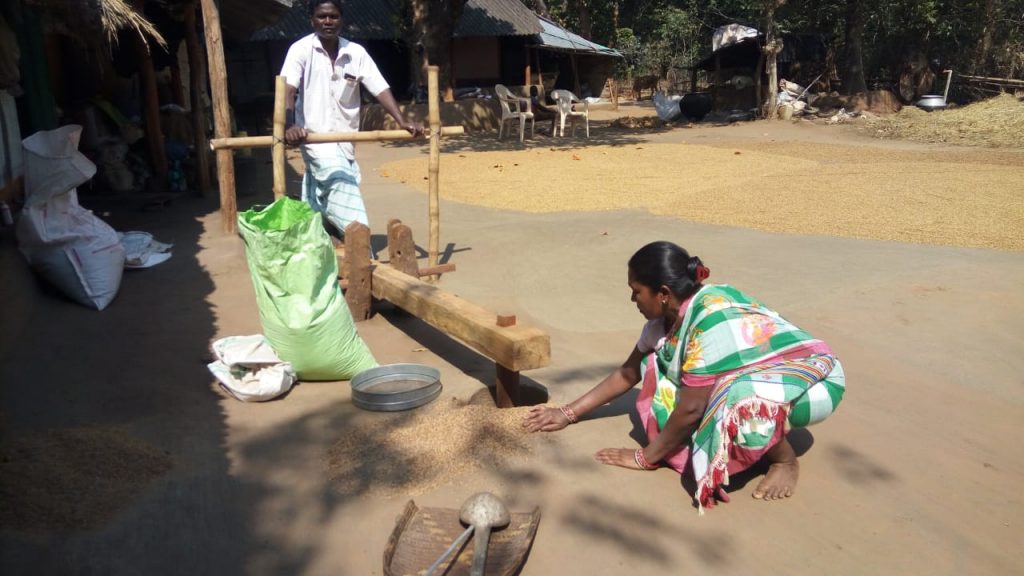Baula: Even as chemical fertilizers and pesticides are widely used in paddy and non-paddy farming in Odisha, a tribal youth in Hatadihi block of Keonjhar district has been striving to revive the traditional practice of growing paddy without the help of fertilizers.
He has become self-sufficient by selling rice processed with traditional thresher for a healthy living. His efforts have set an example for others.
Gobinda Majhi of Dengachua village in Dhenka panchayat is a passionate farmer.
He was initially interested in organic farming and preparation of bio-compost.
Majhi watched YouTube videos and TV channels about organic farming and how to prepare bio-compost.
He collected a variety of wild leaves from forests, cow dung and urine and made bio-compost.
He used bio-compost in growing vegetables. People of his areas liked his safely grown vegetables and demand for his produce grew fast.
This inspired him to expand vegetable cultivation. As the demand rose up, he commanded better price for the vegetables and managed to make a good earning from it.
“I don’t go outside my house to sell vegetables. People happily come to my house and buy vegetables,” he added.
This year, he had cultivated indigenous varieties of paddy in 10 acres of land without using chemical fertilizers. With bio-compost, he has grown 12 quintals of paddy per acre.
“If I had used chemical fertilizers, I would have doubled the harvest – 25 quintals –per acre. But these chemically grown paddies will only lead to dangerous diseases,” he observed.
Instead of selling paddy, he prefers to produce rice in traditional method – dhenki (dhenki or dhinki is an old-style rice mill or husk thresher).
He hopes he will produce 40 to 50 quintal of rice from the harvest.
“I apply cow dung paste on dying yard and boiled paddy is allowed to dry under the sun,” he added.
After boiled paddy gets ready, it is thrashed by his wife, sister and mother.
“The three thrash out 25 to 30 kg of rice. This rice is tasty and has medicinal properties. The rice is said to be effective in diabetes control,” he said.
Majhi pointed out that the rice has so much demand that people are ready to buy it for Rs 100 a kg if he fixes that price.
He noted that the district administration and the state government should give importance to organic farming for ensuring good health of people.
Majhi was adjudged best farmer at the block level in 2011. In 2012, he was honoured by the agriculture department at the district level.
In 2013, he had received award from Chief Minister Naveen Patnaik at the state level for successfully promoting organic farming.
Various outfits urged the government to encourage unemployed youths to take up organic farming on large scale.
